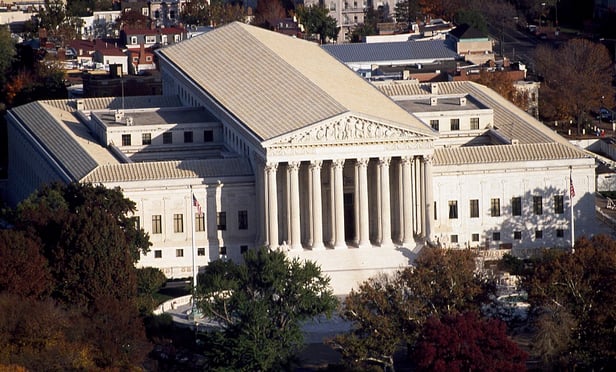Stephen A. Miller

April 03, 2014 | The Legal Intelligencer
U.S. Supreme Court Tackles Questions of Criminal Intent"Guilty knowledge" is often the hardest element for the government to prove in a criminal prosecution. For that reason, criminal practitioners pay special attention to changes in the law that impact the evidence admissible on this score.
By Stephen A. Miller and Jordan S. Fox
6 minute read

March 06, 2014 | The Legal Intelligencer
Private Enforcement of Product-Labeling ViolationsPrivate enforcement of government regulations can serve a useful function. Unleashing an army of "private attorneys general," especially in an environment of scarce public resources, can promote deterrence and better secure compliance with the law.
By Stephen A. Miller and David M. Albert
7 minute read

February 27, 2014 | The Legal Intelligencer
Copyright Act's Application to Internet Television BroadcastsWe live in an on-demand era. That is especially true in the entertainment industry, where on-demand access has transformed music, movies and other art forms.
By Stephen A. Miller and Thomas A. Leonard
6 minute read

February 06, 2014 | The Legal Intelligencer
U.S. Supreme Court to Scrutinize Securities Class ActionsIn two sets of cases this term, the U.S. Supreme Court is set to decide questions that could significantly alter securities litigation on behalf of large groups of investors under both federal and state law.
By Stephen A. Miller and Joshua N. Ruby
7 minute read
January 22, 2014 | Inside Counsel
Potential benefits of cooperation with OFAC (Part 3)Non-cooperating entities certainly run a risk that OFAC will refer their violations to criminal authorities. But even a non-cooperator can receive benefits under OFACs administrative-penalty regime.
By Stephen A. Miller, Matthew A. Glazer, Jeffrey M. Monhait
4 minute read

January 02, 2014 | The Legal Intelligencer
Supreme Court Considers Deference to Other Judicial ProceedingsIn two cases this term, the U.S. Supreme Court will decide the extent to which federal courts should defer to the decisions of other tribunals. Its decisions will have a substantial effect on the role of the federal courts in relation to state proceedings and in reviewing the decisions of international arbitration panels.
By Stephen A. Miller and Arthur P. Fritzinger
8 minute read
December 23, 2013 | Inside Counsel
Potential benefits of cooperation with OFAC (Part 2)This section examines a few recent enforcement actions in which companies have taken advantage of regulatory formulas to minimize penalties resulting from violations.
By Stephen A. Miller, Matthew A. Glazer, Jeffrey M. Monhait
4 minute read

December 12, 2013 | The Legal Intelligencer
The Zombie Rises Again in Religion-State Separation CaseU.S. Supreme Court Justice Antonin Scalia is rarely subtle when angry. And he has often been angry when evaluating the tests employed by his colleagues to resolve First Amendment religion cases.
By Stephen A. Miller and Kathryn A. Young
7 minute read
November 20, 2013 | Inside Counsel
Potential benefits of cooperation with the OFAC (Part 1)Recent settlements in civil enforcement proceedings brought by the Office of Foreign Assets Control (OFAC) suggest that cover-ups, not crimes, may invite the stiffest penalties.
By Stephen A. Miller, Matthew A. Glazer, Jeffrey M. Monhait
8 minute read

November 14, 2013 | The Legal Intelligencer
Justices Considering Jurisdiction Over Foreign PartiesThe jurisdiction cases reviewed by the U.S. Supreme Court are rarely headline-grabbing. Nonetheless, those cases exert a significant effect on the civil litigation that fills the nation's dockets.
By Stephen A. Miller and Arthur P. Fritzinger
8 minute read
More from ALM
- Scan In Progress: Litigators Leverage AI to Screen Prospective Jurors 1 minute read
- Legal Speak at General Counsel Conference East 2024: Match Group's Katie Dugan & Herrick's Carol Goodman 1 minute read
- Legal Speak at General Counsel Conference East 2024: Eric Wall, Executive VP, Syllo 1 minute read



